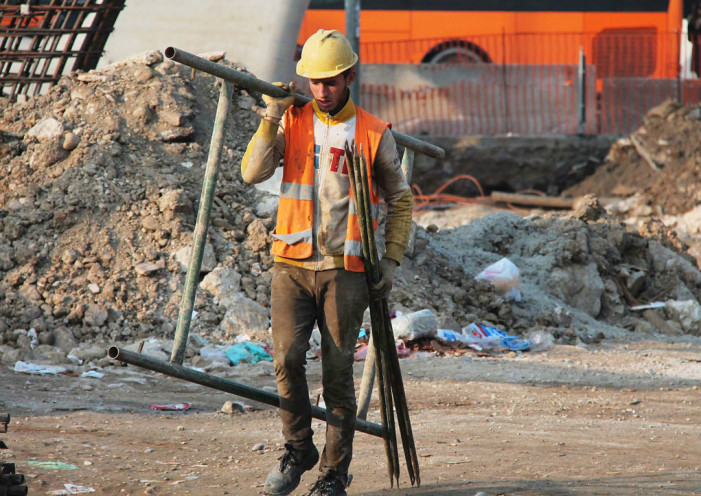
For many years, workplace safety is a topic that is constantly brought up, but the responsible authorities or Albanian employers don’t take it seriously. During these years, there have been many fatal accidents or incidents with damaging consequences for health, especially for workers in the construction business.
You ay perhaps recall the reconstruction of the Tirana International Hotel, right at the heart of the capital, or the reconstruction at the Technical High School at Qyteti i Nxënësve, where two young workers lost their lives. The owners of businesses and public institutions were full of excuses regarding their deaths. Deaths of employees while on the job have also been recorded in energy and mining business. Their tragic losses were all caused by lack of safe working conditions.
The most recent case was in Vlora, during the building of Lungomare, where street signs and proper traffic management were missing, claiming the life of a young worker.
Although the government seizes the licenses of construction firms that do not conform to the work safety standards in their business practice, or presses charges against an engineer or someone else, the construction work continues undisturbed. Maybe the business is reopened under a new name or ownership has been switched between family members, but nothing has really changed.
In the labor culture of Albania it’s enough if the Albanian worker signs an agreement every month that he is aware of work safety regulations. This procedure is overseen by the lead engineer. For them it is sufficient that workers carry their hard hats around and put them on only when some government representative comes for inspection.
In the developed world life safety is a constant concern. Every construction firm has its Department of HSE that serves for the protection of the environment and the health of their employees. This independent department ensures that workplace safety regulations are strictly observed. Its role is to check the work terrain at any moment while it is active, and monitors the employees and the executive staff, holding them accountable for workplace safety regulations, and terminating work until the conditions have been improved and there are no threats posed in the life of the employees etc.
Before they enter the construction site or any other work place, the workers should get familiar with the workplace safety regulations and rules on proper behavior. They should become acquainted with risks at work and how to avoid them while they carefully study the risk evaluation documentation.
With no exception, every one that enters the construction site should be wearing a hard hat, a phosphorescent vest, protective goggles, safety gloves and shoes and should get appropriate training on the basic rules of technical safety. Based on the job, everyone who works above a certain height should wear the body safety belt and to secure it on hard anchoring spots or safety ropes etc.
In Albania, the obsolete scaffolding constructions are the more disconcerting. Most of construction firms here don’t use standardized and certified scaffolds but continue using those second-hand scaffolding which are no longer used in the European Union.
In the majority of private and public firms, including those companies that have an engineer overseeing safety regulations on site, rules of technical safety goes still unobserved.
It is obvious that the employer is not interested in spending money to improve labor conditions or instruct each employee to correctly use their Personal Safety Equipment. A safety belt costs $100, a pair of safety boots type S3 $30, and so on. As a result the employers are not interested to purchase standardized and quality equipment or scaffolding that are pricey.
And the biggest letdown is that employees are not aware of the dangers in their work and don’t value their lives enough. This is also as a result of a difficult economic situation. Some workers even don’t get labor and health insurance.
The Albanian government and its institutions are also responsible for this. Many things are missing, such as detailed guidelines and comprehensive instructions, while actual laws prove to be impractical and unsuitable, merely translations of foreign legislation.
If the responsible institutions would carry out their work based on the actual legislation, or guidelines precisely as instructed, there would be no employer that would violate the rules of workplace safety, and no employee would be able to undervalue these rules and therefore the number of accidents in the workplace would go down.

